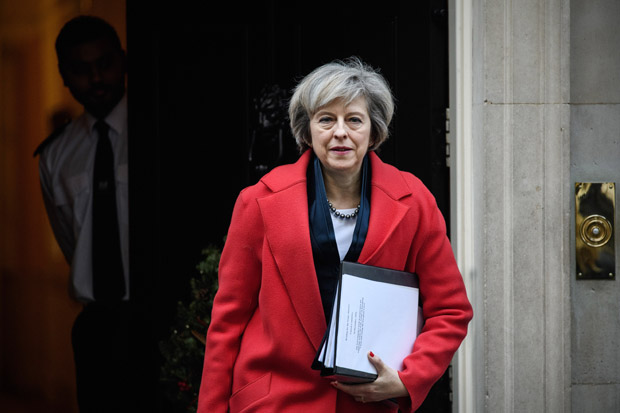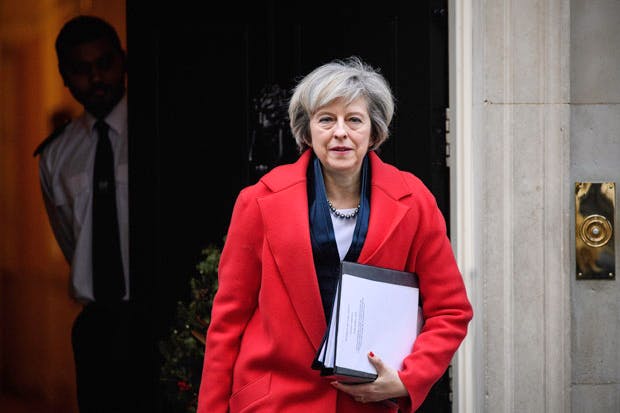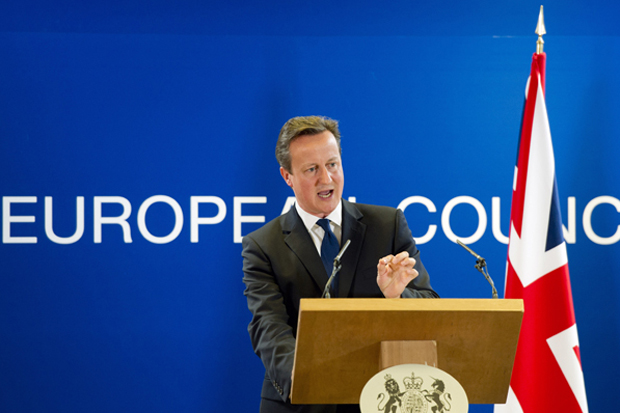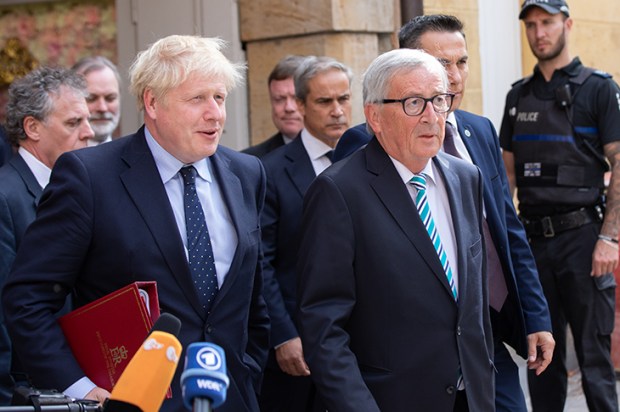It is the fate of all new prime ministers to be compared with their recent predecessors. Theresa May has already been accused of being the heir to the micro-managing Gordon Brown. Her allies, meanwhile, see a new Margaret Thatcher, an uncompromising Boadicea destined to retrieve sovereignty from Europe. But perhaps a more fitting model for May would be a less recent Labour prime minister: Clement Attlee.
When Labourites reminisce about Attlee, it isn’t so much the man himself who makes them misty-eyed. It is the achievements of those who worked for him — Nye Bevan, Ernest Bevin and the rest. Attlee’s government created the welfare state and the National Health Service, and built a million houses. It had lots of excuses not do any of these things. It was a post-war government, which had, to borrow Liam Byrne’s infamous phrase, ‘no money’.
Theresa May leads a government which also has plenty of good reasons not to achieve much in the way of domestic reform. She could point to her slim majority and say it would be risky to expect too much to get through Parliament. The Conservative whips are behaving as though this were the case. Labour MPs often spend much of their week on a one-line whip, which means they needn’t worry too much about turning up to the Commons. But Conservative ministers are summoned back from overseas trips to stop the government’s fragility becoming too obvious in votes. May could argue that the intricacies of Brexit and the economic consequences of the EU referendum mean there is little opportunity to do much else. Or, as one minister puts it, this isn’t so much 1945 as 1940: the government has one main mission, and to divert attention from it would invite disaster.
But how often will any Tory prime minister face such ineffective opposition? Yes, Brexit is demanding. While David Cameron lived in fear of his parliamentary authority collapsing, however, Theresa May now has an extraordinary opportunity to act. She could do everything she wants.
What does she want? Where is the vision? May’s Cabinet supporters agree she is anxious not to be consumed by Brexit and is very interested in the minute details of a number of domestic policy areas. They want her to avoid the fate of David Cameron, who took too long to implement his own plans for a legacy involving greater social justice, and who will consequently be judged chiefly for having inadvertently taken Britain out of the European Union.
Attlee believed that a successful prime minister should be a ‘good chairman able to get others to work’, and David Cameron’s approach was similar. May’s ministers also see her as an ‘executive chairman’, someone who actually wants to hear what they have to say before making up her mind on a policy. But is she able to let her juniors get on with the job of implementing truly radical policies, or would she rather keep them on shorter leashes?
May’s cabinet is split between those who feel the Prime Minister trusts them to get on with things — often because she has worked with them for a number of years — and those who are at the very least uncomfortable with the level of scrutiny from No. 10. The trusted ones say their unhappy colleagues need only to have a little more patience. They point out that it isn’t always May herself but her advisers who get involved in the intricacies of policy, and that a number of these advisers want to avoid what they saw as a dangerously relaxed way of operating under Cameron.
Others among the grumpier secretaries of state simply feel the Prime Minister is all mouth and no trousers (leather or otherwise). They point to the Wizard of Oz-style contrast between big booming announcements on executive pay and school reform and the rather small and timid changes that seem to follow. It’s not only big and controversial proposals, such as the return of grammar schools, that are being soft-pedalled but smaller policies such as a change in the national funding formula for schools. This was meant to reduce inequality between rural and city schools, but, to stop the reform being too politically controversial, no school will lose more than 3 per cent of its funding. With such a low cap it would take more than 30 years for schools to be funded on an equal footing — but the reforms will last for only two years, so there won’t be much of a change. (That hasn’t stopped Tory MPs going on the warpath about it — Graham Brady, chairman of the 1922 committee of backbench MPs, recently said in the Commons that every secondary school in his constituency would lose money.)
One minister whose portfolio regularly suffers meddling from No. 10 worries that ‘the government won’t get anything done if it pays the same level of attention to every policy area. She has to choose four or five key issues that she gets personally involved in, then trust ministers to do the rest.’
So what might those issues be? May has made clear her desire for better mental health care, and has worked closely with Jeremy Hunt — a minister she trusts — on plans to improve it. She is also very keen on housing policy, with this week’s small (and reheated) announcements about garden villages and starter homes preceding a detailed housing white paper that should be ready in the next few weeks.
But ministers across her government are desperate for her to make social care a priority, arguing bitterly that she is merely ‘papering over the cracks’ with her latest funding announcements, and pointing to the failure of the past two governments to address the crisis in social care funding. ‘She has an incredible opportunity to do something bold on this, like Attlee,’ says one minister. ‘Labour won’t oppose her — it can’t — and the country needs this reform. If she really was bold, this would be her priority after Brexit.’ It is worth remembering that one prime minister who tried and failed to be bold on social care was Gordon Brown.
‘If she really was bold’ is a phrase ministers use again and again about the Prime Minister. The Brexit talks give her an excuse not to show that boldness. But great prime ministers shouldn’t need to make excuses.
Got something to add? Join the discussion and comment below.
Get 10 issues for just $10
Subscribe to The Spectator Australia today for the next 10 magazine issues, plus full online access, for just $10.
You might disagree with half of it, but you’ll enjoy reading all of it. Try your first month for free, then just $2 a week for the remainder of your first year.















Comments
Don't miss out
Join the conversation with other Spectator Australia readers. Subscribe to leave a comment.
SUBSCRIBEAlready a subscriber? Log in